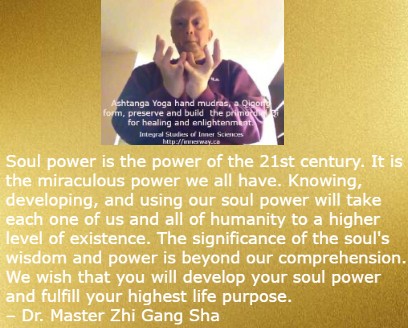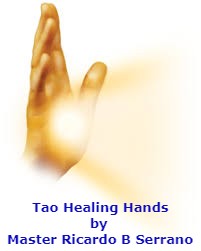

A gift of joy is the gift Mohammed wishes to grant to mankind.
A life of joy in loving Allah, in praising Allah is what brings one
to that wellspring of joy in the heart of every man.

by Swami Sivananda MOHAMMED, known as the Prophet of Islam, was born of the esteemed Qoreish tribes in Mecca on the 20th of April. The chief occupation of his tribe was trade. The Islamic Prophet led a life of simplicity and poverty. His house, built of mud walls and thatched with date-palm leaves, often remained dark for want of oil for the lamp. At times he did not even have the flour with which to prepare bread. Mohammed's father was Abdullah. He died while returning from a journey to Medina. His mother died six years later, leaving Mohammed in the care of his uncle, Abu Talib. His mother's name was Amna. Mohammed was illiterate but from an early age he showed a remarkable aptitude for concentration. He was a serious child and never took part in pranks or frolic. When he grew up he earned a great reputation for his honesty and integrity. He always fulfilled his promises. Because he was extremely trustworthy, he became known as Al-Amin. One day, Mohammed accompanied his uncle to Syria on business. On the journey he met Bahera, a Christian monk, who immediately recognized in the young boy a future prophet. When Mohammed was twenty-five years old he married Khadija, a rich widow of Mecca, then forty years of age. She was a gentle woman of spotless character. THE BIRTH OF ISLAM Mohammed frequently went to a cave in the desert three miles from Mecca, where he would spend months in prayer and meditation. One morning, the angel Gabriel appeared to him and said: "Rise, for thou art the Prophet of God. Go forth and preach in the name of thy Lord. Your God is merciful." A voice was heard - the voice of the Lord - addressed to the Prophet. It was recorded and became the text of the holy Koran. The Koran is not a literary work of Mohammed; it is a direct revelation of the Lord. When he returned from the cave, Mohammed was filled with divine majesty. On informing his wife of the vision he had, she said, "You are faithful and never utter an untruth. Therefore, you may obey the call and follow the voice." Khadija was the first disciple to profess faith in the Prophet. She became his disciple and the first follower of Islam. Mohammed delivered public sermons on his faith to a large number of people, proclaiming the unity of God and denouncing the evil of drunkenness and impurity. Though some ridiculed and turned away, others were converted by the power of his words. Once, he went to the Kaaba and proclaimed that there was no God but Allah. The worshippers of idols looked upon this as a great insult and attacked him, but he was rescued by his disciples. He was abused and insulted frequently in public. The Prophet of Islam did not hold any debates nor did he challenge anyone to controversies and discussions. He silently converted people to his faith through his strong personality, charming demeanor and force of divine virtues. He bore with patience the persecution of his tormentors. His characteristics as well as the power of the verses of the Koran captivated the hearts of people. THE SPREAD OF ISLAM Mohammed fled from Mecca to Medina in 622 A.D. when he learned that the Qoreish tribe planned to take his life. The Muslim calendar begins on the day of this flight, known as the Hijra. The people of Medina accepted Mohammed's faith readily because it was plain, simple and direct. With their help and with an army of men the Prophet later returned to Mecca, where he succeeded in converting his relatives and fellowmen. He then sent missionaries to other parts of Arabia in order to convert the entire peninsula to the new faith. The teaching of Mohammed attracted numerous followers because they came from a simple and honest man who never posed as a world teacher. He often told his disciples that he was an ordinary man as they were, teaching them to believe in Allah and His revelations. COMPASSION IN ACTION Mohammed had great compassion and love. He served the widows and orphans, the poor, sick, aged and homeless. Once, he met an old, impoverished widow. Mohammed said to his wife, "My beloved, give food to this old woman first and then you may eat." When the Prophet saw a blind woman stumbling in the street in Mecca, he led her gently home and thereafter took meals to her daily. One day, he saw a woman with a heavy load on her head. At once he relieved her of her burden and carried it on his own head to her house. Mohammed was humble and simple. Although he was a Prophet with a large following he worked along with others like an ordinary labourer during the construction of the first mosque at Medina. He mended his own shoes, milked the cows, swept the house, purchased provisions, tethered and fed the camels. He never laughed loudly but simply smiled. He had an attractive face and a charming smile. He respected the poor and restored freedom to many slaves. TENETS OF ISLAM Islam, meaning "resignation to the Will of God", bears marked similarity to the Semitic religion of Judaism. It emphasizes the principle of brotherhood and equality of man, and is based on austere, simple living. The main injunctions of Islam are fasting, prayer, pilgrimage, charity and firm belief in the oneness of God and His prophets, particularly Mohammed. The holy Koran, divided into more than one hundred chapters, opens and ends with the subject of the unity of God. The religion of Islam is essentially a religion of peace, for Mohammed was a lover of peace and non-violence. Selflessness and service to suffering humanity are the watchwords of Islam. ANECDOTES While Mohammed was serving a sick slave, the latter asked, "Has my master sent you to look after me?" "Yes," said Mohammed, "the master of masters has sent me to serve you." One day, a dying dog approached a follower of Mohammed. The man had no means with which to procure water for the dog, for wells in the desert dry up quickly. He noticed a small pool of muddy water in the vicinity. He tore his shirt, soaked it in the water, placed the dog in his lap and moistened its mouth with the wet cloth. Another Arab who saw this went to the Prophet and said, "One of your followers has touched a filthy animal, a dog, and should therefore not be allowed back here again." Mohammed questioned, "What was he doing to the dog?" "I do not know, but I saw him moistening its mouth with a torn piece of cloth dipped in muddy water," replied the man. "He is a better Muslim than you are, because he is kind to animals," said the Prophet. When Mohammed was in Mecca once, a poor shepherd from the hills came to worship in the mosque. He worshipped in his own simple way, performing the necessary ablution, kissing the stone and bowing before the sacred spot. Tears flowed from his eyes as he prayed: "O adorable Lord of love, show me Thy face. Let me be thy servant. Let me mend Thy shoes, apply oil to Thy hair, wash Thy soiled clothes and bring Thee daily the milk of my goat. Let me kiss Thy hand and shampoo Thy sacred Feet. Let me sweep Thy room." Such simple words of the honest and straightforward shepherd offended the priests who stood near him. They said to him, "What blasphemy is this? There is no need of such gifts for the omnipotent Lord." They were ready to drive him out of the temple, when the Prophet called them to him and asked, "When you are in distant lands, in which direction do you turn your faces?" "We turn our faces to Mecca," they answered in reply. He further asked, "When you are within this sacred walls, in which direction do you turn your faces?" "All is holy here," they replied. "It does not matter which way we turn." The Prophet then said, "Your answer is beautiful indeed. Within the mosque it does not matter how you pray, as long as you have love and reverence. This poor shepherd's simple prayer entered directly into the ears of Allah more clearly than yours, as it was uttered from his heart with intense love, faith, sincerity and reverence. Make room for God's poor lover near me. Let no one be ashamed to have his company. He is humble, pure and exalted soul." (article courtesy of Divine Life Society)  Soul power is developed and used by Tao Healing Hands Practitioner 
Six healing Qigong sounds book at https://www.amazon.com/dp/0988050269 The Meditation and Qigong Mastery book at https://www.amazon.com/dp/0987781901 Return to Oneness with the Tao book at https://www.amazon.com/dp/0987781960 Return to Oneness with Spirit through Pan Gu Shen Gong book at https://www.amazon.com/dp/0987781979 Keys to Healing and Self-Mastery according to the Hathors book at Return to Oneness with Shiva book at Oneness with Shiva book at The Cure & Cause of Cancer book at
To order the Maitreya (Shiva) Shen Gong & Omkabah Heart Lightbody Activation DVDs with shipping, cost $60, with a 2-page Healing Conscious Mind Encodements (pdf) enclosed, please click the Paypal button below:

 Home | Sheng Zhen | Qigong | Workshops | Links | Contact Us Contact ShengZhen@holisticwebs.com |